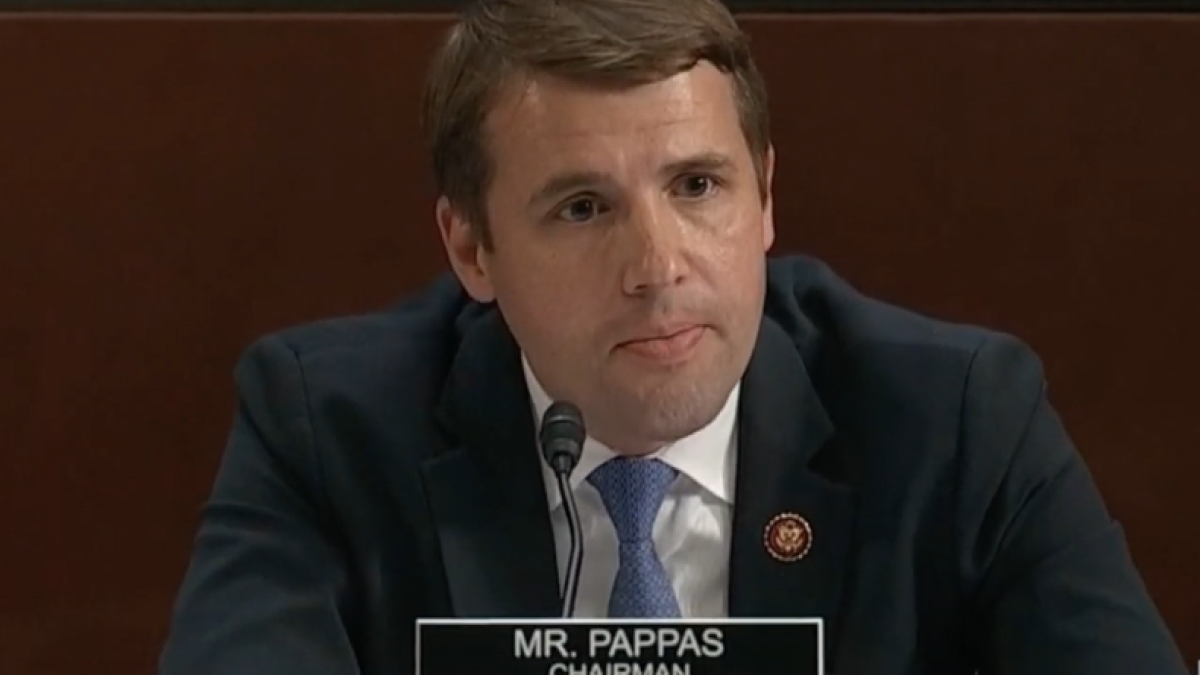AFP Targets Pappas Over Support for ‘Bidenomics,’ Big Spending

President Joe Biden’s “Bidenomics” spending spree is buying nothing but record debt, lower wages, and a weaker economy, and Democratic U.S. Rep. Chris Pappas (D-N.H.) keeps cosigning the charges, according to a new campaign out this week from Americans For Prosperity.
AFP, a libertarian-leaning grassroots activist organization, is launching an ad campaign in five states targeting Democrats who, like Pappas, are in more centrist districts but embraced Biden’s entire economic agenda, including trillions in post-COVID spending.
The 15-second streaming ad highlights the negative consequences of Biden’s Inflation Reduction Act, like the inflationary increase in prices for gas, groceries, and housing now faced by average Americans. According to AFP, it takes an extra $11,400 to afford the standard of living Americans had when Biden took office in January, 2021.
“Rep. Pappas has done nothing but rubber-stamp President Biden’s agenda. And it couldn’t be further from what Granite Staters expect of their elected leaders,” said Greg Moore, AFP-NH’s state director. “You can see the difference between the heavy hand of Bidenomics and the light-touch policies that have made New Hampshire the freest state in the nation with robust economic growth.
“Rep. Pappas needs to give up on Bidenomics and take a page from the New Hampshire Advantage,” Moore said.
AFP’s campaign, which will include the streaming ad as well as direct mail and door-to-door outreach, is a response to Biden’s reelection campaign Bidenomics Bus Tour. Despite polls showing nearly twice as many Americans believe Biden has hurt the economy (49 percent) than helped it (28 percent), the incumbent president has made “Bidenomics” a centerpiece of his campaign for a second term.
“No president’s had the run we’ve had in terms of creating jobs and bringing down inflation,” Biden claimed last week. “It was 9 percent when I came to office, 9 percent.”
(Biden’s claim is false. Inflation was actually 1.4 percent when Biden took office, though it soared to 9 percent in June, 2022.)
Not surprisingly, the candidates in the First Congressional District GOP primary aren’t fans of Biden’s economics.
“As a small business owner, I have felt the implications of President Biden’s painful inflation and Congressman Pappas’ reckless tax and spend agenda in Washington,” said Republican Russell Prescott. “As a former state senator who has balanced budgets and stopped a sales and income tax, I have the necessary experience of governing in a fiscally responsible way. Our campaign is uniquely positioned to hold Chris Pappas accountable for his out-of-control spending spree in Congress, and we look forward to doing so this November.”
Pappas is also a business owner — his family owns the Puritan Backroom restaurant in Manchester — a fact noted by GOP contender Chris Bright.
“Thanks to the disastrous Biden-Pappas economic agenda, New Hampshire families pay more for their mortgage, more for groceries, more for gas and even the chicken tenders at the Puritan Backroom cost over 30 percent more than they did before their reckless spending spree.
“It’s time for a dramatic change of direction that reins in overspending, puts our economy back on track and gets the cost of living under control.”
And Hollie Noveletsky, another GOP candidate, said the spending pushed by Pappas and Biden adds up to fiscal pain for everyone else.
“As the owner of a small business that has been debt-free for over 30 years, I have to be fiscally responsible. If I wasn’t, my company would be bankrupt and my employees would lose their jobs,” Noveletsky said.
“Unfortunately, career politicians like Chris Pappas have blown out government spending which has been the main cause of inflation and higher costs. Those increased costs are putting the squeeze on middle-class families when they go to the grocery store. That real life impact will definitely impact the ballot box this November.”
Pappas voted for all of Biden’s major spending proposals, including the American Rescue Plan of 2021 ($1.9 trillion), the Infrastructure Investment and Jobs Act ($1 trillion) and the so-called Inflation Reduction Act ($1 trillion), which economists agree is not reducing inflation.
The spending has driven the U.S. federal debt to $35 trillion. In fiscal year 2022, the deficit was $1.38 trillion. The following year it was $1.7 trillion. This year, the budget deficit will total $1.5 trillion and grow to $2.6 trillion by 2034, with interest payments on the debt going from $659 billion in 2023 to more than $1.6 trillion by 2034.
“Interest on the national debt, already higher than federal spending on children or Medicaid, will exceed spending on defense next year, on its way to $1 trillion by 2026. This is no way to run a country,” said Maya MacGuineas, president of the Committee for a Responsible Federal Budget.
The debt is also cutting into income and wages for most Americans, according to the CBO. Over the next three decades, the national debt is expected to cut wages and income by at least $8,000 per person, though if more debt is added under Biden’s proposals, that could jump to as much as $141,000 in lost income over 30 years, according to the CBO.
MacGuineas said it’s past time for Congress to take responsibility before the debt crashes the economy.
“We can start by actually passing a budget and by establishing a bipartisan fiscal commission to tackle some of these issues. We need a real plan to put the national debt on a downward sustainable path before it’s too late,” MacGuineas said.
Pappas declined to respond to requests for comment.









